
Thousands of years after it was founded around 3000 B.C. in what is now Mosul, Iraq, the city of Nineveh underwent a sweeping campaign of urban renewal. This redevelopment project was led by the newly crowned Neo-Assyrian king Sennacherib (reigned 704-681 B.C.), who sought to transform the ancient city into a suitable imperial capital. Sennacherib built a huge royal residence and expanded the city's footprint, surrounding it with high walls punctuated by 19 imposing gates. Inscriptions commemorating the walls' construction describe one of the gates as "that of Ea who causes my springs to flow," says University of Pennsylvania archaeologist Michael Danti. "Ea was a water deity and was also associated with wisdom, rituals, and incantation." This particular gate provided direct access to the Tigris River and is known as the Mashki Gate, or the "Gate of the Watering Places."
هذه القصة مأخوذة من طبعة May/June 2023 من Archaeology.
ابدأ النسخة التجريبية المجانية من Magzter GOLD لمدة 7 أيام للوصول إلى آلاف القصص المتميزة المنسقة وأكثر من 9,000 مجلة وصحيفة.
بالفعل مشترك ? تسجيل الدخول
هذه القصة مأخوذة من طبعة May/June 2023 من Archaeology.
ابدأ النسخة التجريبية المجانية من Magzter GOLD لمدة 7 أيام للوصول إلى آلاف القصص المتميزة المنسقة وأكثر من 9,000 مجلة وصحيفة.
بالفعل مشترك? تسجيل الدخول
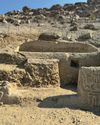
ORIGINS OF PERUVIAN RELIGION
While investigating looters' holes at the site of La Otra Banda in northern Peru's Zaña Valley, archaeologist Luis A. Muro Ynoñán of the Field Museum and the Pontifical Catholic University of Peru spotted carved blocks around seven feet below the surface.

ISLAND OF FREEDOM
Many of the enslaved Africans sent to Brazil beginning in 1549 were from what is now Angola, where one of the most widely spoken languages was Kimbundu.
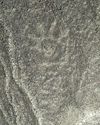
NAZCA GHOST GLYPHS
From the 1940s to the early 2000s, geoglyphs were discovered in the Nazca Desert of southern Peru depicting animals, humans, and other figures at the rate of 1.5 per year.

COLONIAL COMPANIONS
The ancestry of dogs in seventeenth-century Jamestown offers a window into social dynamics between Indigenous people and early colonists.
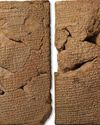
BAD MOON RISING
The British Museum houses around 130,000 clay tablets from ancient Mesopotamia written in cuneiform script between 3200 B.C. and the first century A.D.
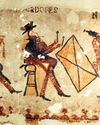
DANCING DAYS OF THE MAYA
In the mountains of Guatemala, murals depict elaborate performances combining Catholic and Indigenous traditions
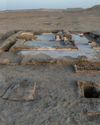
LOST GREEK TRAGEDIES REVIVED
How a scholar discovered passages from a great Athenian playwright on a discarded papyrus

Medieval England's Coveted Cargo
Archaeologists dive on a ship laden with marble bound for the kingdom's grandest cathedrals

Unearthing a Forgotten Roman Town
A stretch of Italian farmland concealed one of the small cities that powered the empire
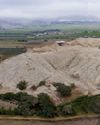
TOP 10 DISCOVERIES OF 2024
ARCHAEOLOGY magazine reveals the year's most exciting finds